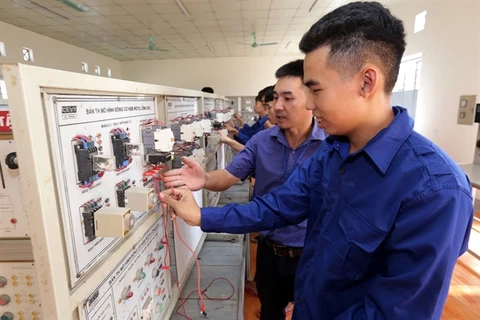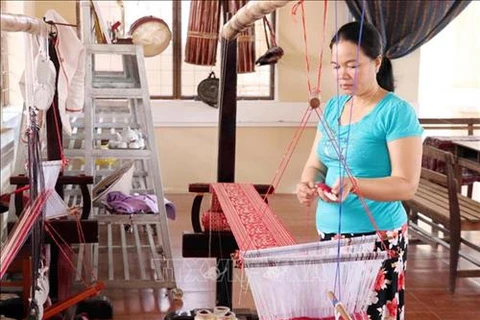Hanoi (VNA) - An agreement on enhancing cooperation in the field of vocational education and training and skills development between Vietnam and New Zealand was signed in Hanoi on July 20.
The agreement was signed between Wendy Matthews, New Zealand Ambassador to Vietnam, and Truong Anh Dung, General Director of the Directorate of Vocational Education and Training under the Ministry of Labour, Invalids and Social Affairs.
It is a framework for sharing best practices in vocational training policy, qualification frameworks and industry engagement.
Under the agreement, New Zealand’s Government to Government Know-How (G2G) will contribute to Vietnam workforce improvement effort by facilitating partnerships between New Zealand’s government agencies, vocational institutions and research institutes with the Directorate of Vocational Education and Training as well as other relevant agencies and institutions in Vietnam.
Ambassador Wendy Matthews said established in 1992, New Zealand’s Qualification Framework is one of the first comprehensive qualifications frameworks in the world.
“We continue to ensure that the system incorporates improvements and innovations into order to make sure that our vocational training and qualification systems best respond to the needs of our evolving industries,” she said.
“Our high-quality education system and expertise in vocational training make us well placed to deliver more joint initiatives focused on improving the quality of Vietnam’s vocational education system, so as to increase the competitiveness and productivity of the country’s workforce to meet global demands,” she added.
General Director Truong Anh Dung said Vietnam’s vocational education and training system has seen positive achievements over the last few years. General public and businesses’ perception on the importance of vocational training has been improved. There were more people choosing to study at vocational institutions, while graduates had higher chances of getting work job and a stable income.
“In the context of the digital economy, the knowledge-led economy, the 4th Industrial Revolution and international labour mobility trend, vocational training needs to speed up its renovation to improve training quality in order to meet the increasingly high demand for labour,” he said./.
The agreement was signed between Wendy Matthews, New Zealand Ambassador to Vietnam, and Truong Anh Dung, General Director of the Directorate of Vocational Education and Training under the Ministry of Labour, Invalids and Social Affairs.
It is a framework for sharing best practices in vocational training policy, qualification frameworks and industry engagement.
Under the agreement, New Zealand’s Government to Government Know-How (G2G) will contribute to Vietnam workforce improvement effort by facilitating partnerships between New Zealand’s government agencies, vocational institutions and research institutes with the Directorate of Vocational Education and Training as well as other relevant agencies and institutions in Vietnam.
Ambassador Wendy Matthews said established in 1992, New Zealand’s Qualification Framework is one of the first comprehensive qualifications frameworks in the world.
“We continue to ensure that the system incorporates improvements and innovations into order to make sure that our vocational training and qualification systems best respond to the needs of our evolving industries,” she said.
“Our high-quality education system and expertise in vocational training make us well placed to deliver more joint initiatives focused on improving the quality of Vietnam’s vocational education system, so as to increase the competitiveness and productivity of the country’s workforce to meet global demands,” she added.
General Director Truong Anh Dung said Vietnam’s vocational education and training system has seen positive achievements over the last few years. General public and businesses’ perception on the importance of vocational training has been improved. There were more people choosing to study at vocational institutions, while graduates had higher chances of getting work job and a stable income.
“In the context of the digital economy, the knowledge-led economy, the 4th Industrial Revolution and international labour mobility trend, vocational training needs to speed up its renovation to improve training quality in order to meet the increasingly high demand for labour,” he said./.
VNA
























